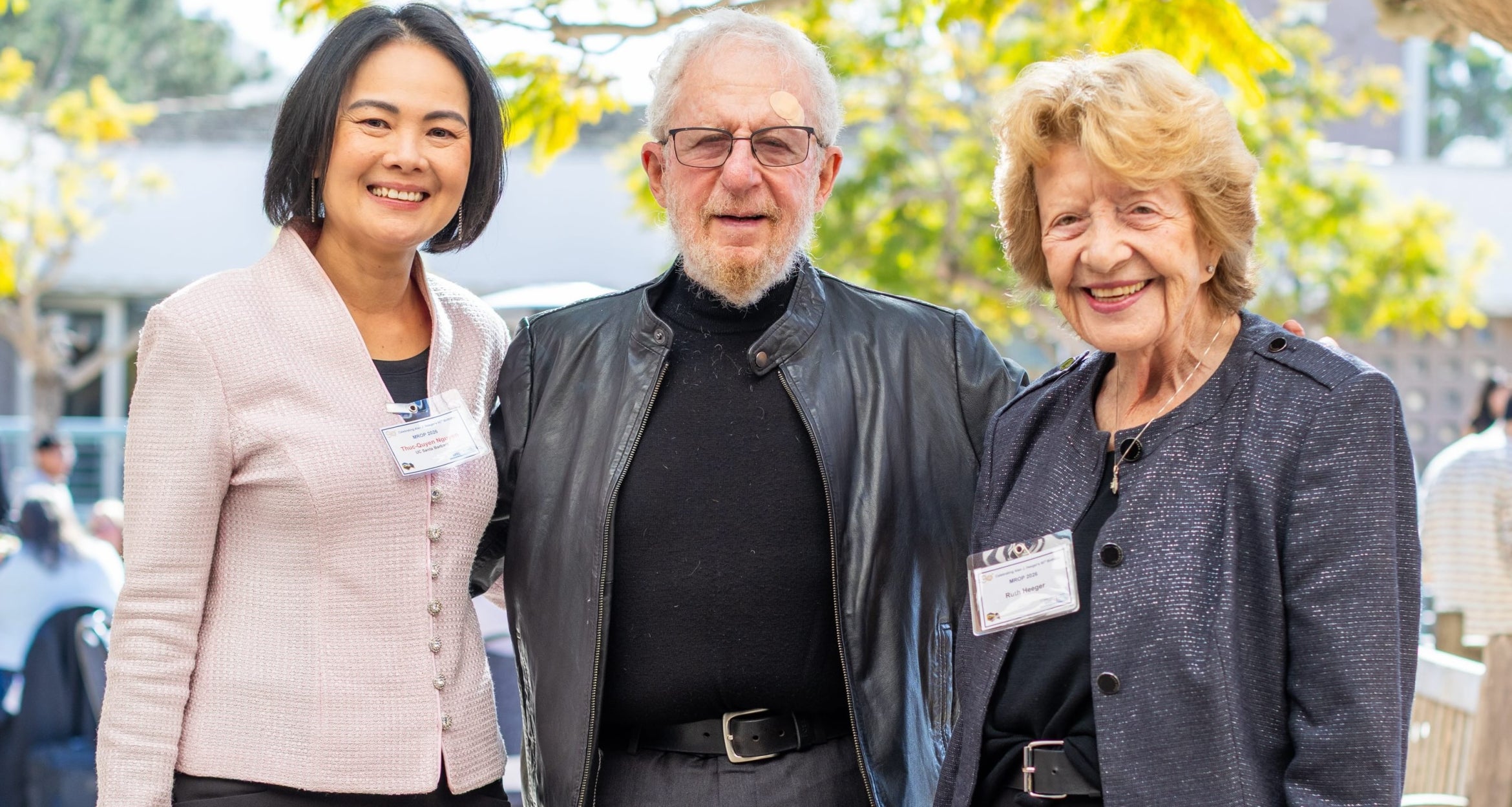
An Objective Award

Dan Korman, a professor of philosophy at UC Santa Barbara, has won the Marc Sanders Prize in Metaethics for his paper, “Against Minimalist Responses to Moral Debunking Arguments.”
Korman and his co-author Dustin Locke, an associate professor of philosophy at Claremont McKenna College, split the $10,000 prize, and their paper will appear in Oxford Studies in Metaethics, with a publication date of summer 2020.
“I’m really excited about it,” Korman said. “It’s my official entrance into these debunking debates in metaethics.”
In metaethics, which studies the very foundations of morality, debunking is one of the most hotly debated issues today. “Lots of people say that morality isn’t objective and must be subjective, and debunking arguments are one specific way of arguing for that view of morality,” Korman explained. “What’s distinctive about debunking arguments is that they point to the fact that moral judgments are the products of evolutionary forces, and argue that this poses a big problem for moral objectivists.”
This was a particularly good year for Korman. In addition to winning the metaethics prize — one of 10 the Marc Sanders Foundation awards annually — he was one of two runners-up in the metaphysics category with his paper “A Puzzle About Places.”
The metaethics prize is a major feather in his cap. The competition was judged by an international committee of respected metaethicists: Tristram McPherson of Ohio State University, Hille Paakkunainen of Syracuse University and Jonas Olson of Stockholm University. Those philosophers are also not shy about sharing their thoughts on his paper. When he and Locke were notified about winning, they were told the prize committee had written up comments for potential revisions of the paper.
“They raised a slew of objections and told us why they found our arguments unconvincing,” Korman said. “It’s how we honor each other. The punches start coming right away. We appreciate it.”
As he noted, metaethics resists easy description. “It’s asking foundational questions about ethics,” Korman explained. “Not trying to figure out which things are right and wrong, but figuring out things like, is morality objective, or is it something that we construct? How do we know anything about what’s right or wrong? And can we know anything about what’s right or wrong?”
Broadly speaking, an objectivist view of morality says that there are real facts about what’s right or wrong that are entirely independent of what we believe or feel to be right or wrong. Let’s let Korman explain it:
“Now,” he said, “if objectivism is true, then it makes sense to wonder: Do our beliefs about what’s right and wrong line up with what really is right and wrong?
“And this is where evolution comes in and threatens to wreak havoc for the objectivist,” Korman continued. “Ask yourself: Why do we have the kinds of moral beliefs we have? The answer’s going to have an awful lot to do with evolution and natural selection — these sorts of beliefs or psychological tendencies helped keep our ancestors alive; it’s what’s adaptive.
“Here’s why that’s a problem: You start questioning a shady politician about his views, and he’s just going to tell you whatever he thinks is going to get you to vote for him. Once you realize that, you’ve got no reason anymore to think that what he said reflects his actual views.
“Same thing with our moral beliefs: Once you realize that the processes that yielded them really only had an eye to what’s going to keep us and ours alive, you’ve got no reason to think that your moral sensibilities get you even roughly on the right track to discerning the actual moral truths. That’s the moral debunking argument!
“Now, I don’t want you to get the wrong idea. Dustin and I aren’t necessarily convinced that the debunking arguments work. But we think that a lot of moral objectivists have been too quick to dismiss the arguments — that’s what we try to show in the paper. And if we’re right, then it’s back to the drawing board for the moral objectivist.”
For people not immersed in philosophy, moral debunking arguments can be a hard subject to get your head around. Korman, who is extraordinarily patient in explaining these concepts, understands the difficulties.
“I know,” he said, “because I've spent almost 10 years now trying to wrap my mind around debunking arguments, and so I remember what it was like, even as a trained philosopher, first encountering this stuff.”



